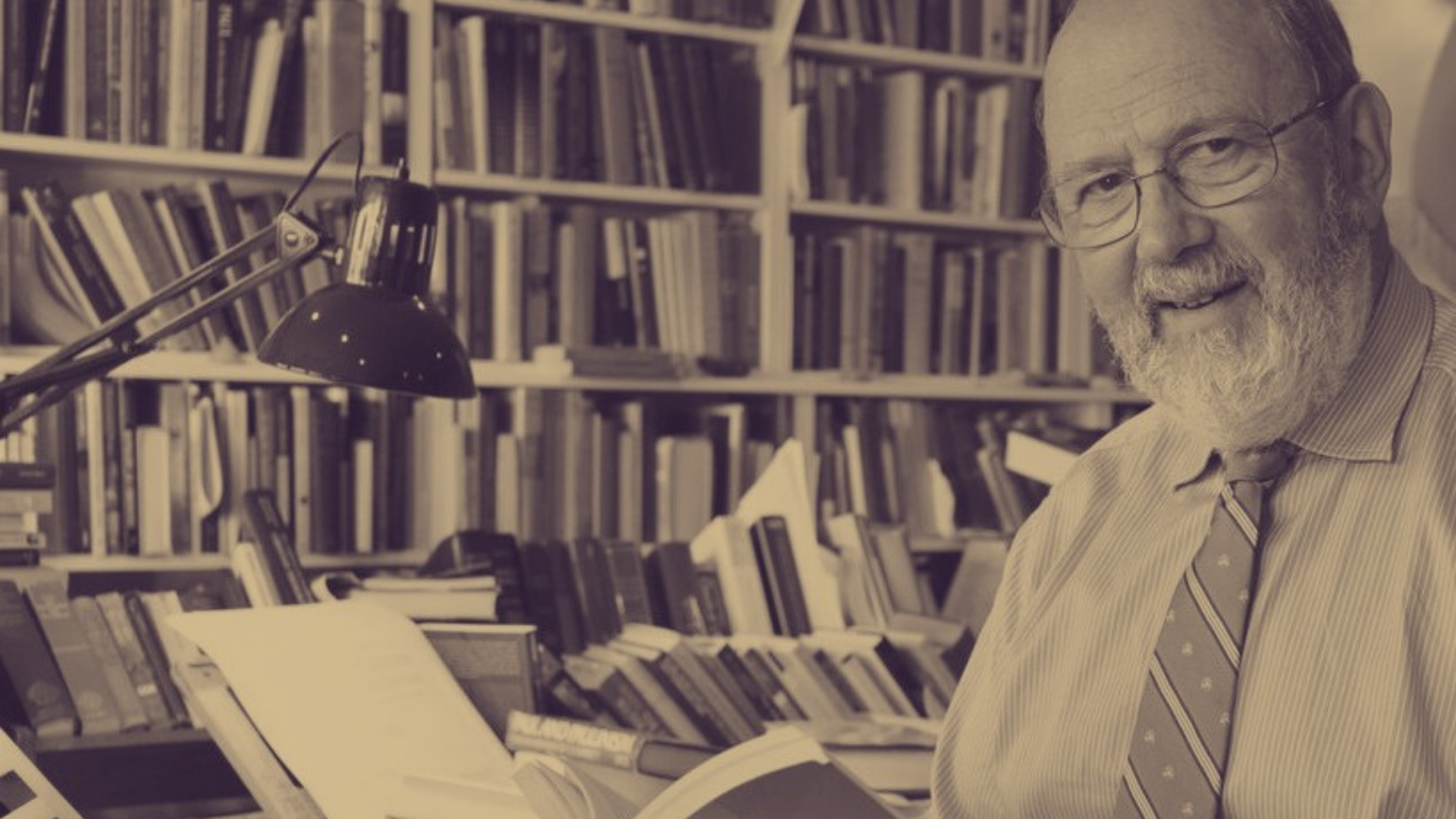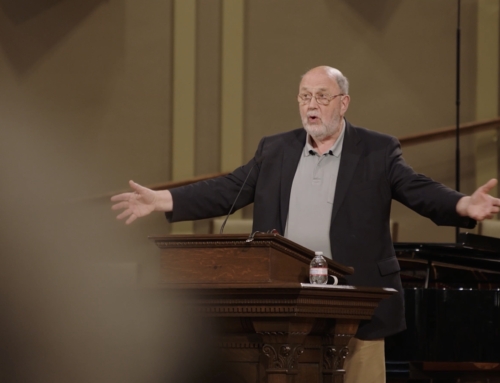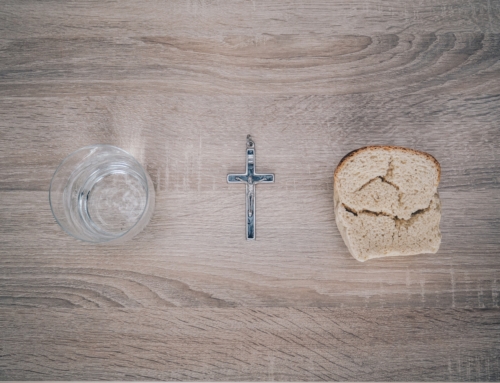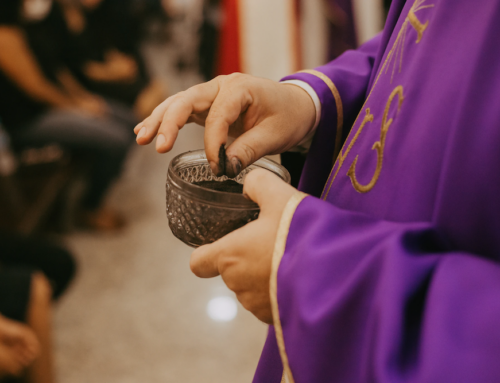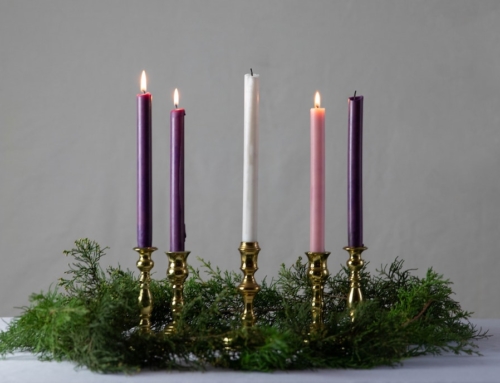Our latest course, Selections From Psalms: Part One, is available now for only US$59.99.
As we’ve been putting this course together, I’ve had a few opportunities recently to talk with Prof. Wright about ideas like prayer, the Psalms, music, and how it all relates to our life as the Church.
Below are some excerpts from interviews we’ve done on these topics.
Excerpts from Interviews with Prof. Wright
Could you tell us about your own spiritual practices, and where the Psalms fit in?
My day normally begins quite early. I’ve always been a morning person. I like getting up around 5:30 and I seem to have an automatic wake up system. I don’t even have to set an alarm.
I stagger downstairs and sort out all the mess from the previous night. I make myself a large pot of tea, take my daily medication, and then I head through to the study with the pot of tea.
The pot of tea and I do business with the Bible for roughly an hour or so, depending on which readings are for the day. I have different systems of readings where I’m working through Old Testament and New Testament simultaneously. But the Psalms are a constant.
I’m reading the Psalms in Hebrew, or the Old Testament in the Septuagint Greek or vice versa, and then the New Testament in Greek. Then in-between and around those readings I use the normal Anglican morning prayer liturgy. This liturgy is various poems, mostly Psalms actually.
When I’ve ingested whatever’s coming at me from those biblical passages, then I turn to prayer. I spend some time in prayer for the day, for people, for situations.
Then I’ll come and grab some breakfast and see what else is going to be done. But that’s pretty much how I’ve started the day for many, many years now. And I don’t expect to change.
You talked a bit about the systems that you’ve established. What are some of the habits that you began to develop when you were young?
I was lucky in that when I was about 12 or 13 somebody — I think it was somebody who came to my school. The school wasn’t specifically a Christian school, it was just an ordinary English school in the 1950s. Back then things like daily prayer in schools was mandatory. Anyway, some guy came and was inviting us to sign on for summer boys camps, which were run by the Scripture Union, which I did and which I greatly enjoyed.
But he also suggested, quite casually, that sometimes people like to read a bit of the Bible every day. And here are some notes which will help you do that. And I remember at the time thinking ‘what a great idea’. So I got the Scripture Union notes and began reading a passage of scripture every morning when I was about 12. And basically I’ve never seen any reason to stop. I graduated from Scripture Union notes to other things over the years.
So that became, through my teens, a kind of anchor while I was at a boarding school: just learning the habit of getting up early, spending 10 minutes, quarter of an hour in the Bible and prayer. Then ‘Okay, we can get on with the day’. And then that has developed over time.
For someone who’s struggling in this area — maybe hasn’t gotten started or feels stuck in a rut — how might they begin?
It’s difficult because there is a personality issue here. Some people are natural habit formers and other people simply are not, and I respect that and I have always liked having that. But I would say it is worth persevering and getting into a rhythm that, however chaotic the rest of your day wants to be, having something where you can latch onto it.
Of course, it is difficult. I mean, we had four children in quick succession, and when you’ve got kids and they’re waking up at odd hours of the night and so on needing feeding, or changing, or whatever—. Yeah. There’s all sorts of times when you can’t maintain the discipline you’d like. Or if you’re traveling or whatever. But it’s worth having a goal and sticking with it.
I know for some people it’s the last thing at night. That’s hopeless for me, I just keel over. But having some sort of habit of Bible and prayer day by day, I would say is a sheet anchor for life.
Could you tell us about the role of music in your life and faith?
The college chapels have this amazing music and Maggie and I have always enjoyed good choral music as part of our worship. To be able to go into those college chapels again and just join in the worship of these great musical traditions. Again, it’s been difficult if not impossible for much of lockdown, but we’re looking forward to getting back to it now.
Music has always been important. I grew up in a family which wasn’t a professional musical family or whatever, but there was always music around, and my mother played the piano a bit and my sister and I both learned.
As soon as my fingers were big enough, I got onto a guitar. Actually, I started with a banjo because my fingers were too small for the guitar but there was an old banjo lying around. I remember exploring by myself how harmony worked, not knowing that there were even words for the things that were happening with the harmony, but relishing it.
And then music and spirituality kind of go side by side. I sang in a church choir when I was seven, though my voice broke at 13. And then I did a lot of singing through my teens as well. That was partly just delightful secular singing, but also a lot of church music and Bach’s Passions, Handel’s Messiah, and so on.
A lot of the prayers that I pray, which are kind of woven into me, come with music attached. Sometimes the music will stimulate the prayer. Music has become a sort of metaphor and imagination for exploring other things as well, particularly the way that books of the Bible work like symphonies or concertos. I learned about how symphonies and concertos worked before I knew about how books of the Bible work, but the great art has a similarity.
Can you talk a little bit about the importance of good hymnody to the Church?
I found that from early days, the hymns that we sang in the church I went to — the typical Anglican hymns, many of which actually were Methodist hymns which the Anglicans had shamelessly borrowed, and some of which were much, much older hymns from the earliest centuries of the church — those have carried a sense of spirituality, a sense of the presence of God, a sense of what worship is all about.
I have worried over the last generation as I’ve participated in worship in many, many very different settings. These days there’s so much emphasis on things that were written within the last 20 years, some of which do not have the depth and the sheer poetry of some of the older ones. I worry about a generation growing up that doesn’t know those great hymns.
Now, God can work in all sorts of ways. But there is a depth to the older tradition, which I hope the coming generation will recapture, and will be delighted to discover some of the things which, as I say, I grew up with. Many of which then form a kind of river of prayer that you can step into if you’re just walking along. They’re part of the mental furniture.
How do prayer and worship in the life of the church relate to our thinking? Right thinking leads to right thinking and praying, or is it the other way around?
It’s a good question. I think it’s all part of a glorious spiral which has to do with our personalities as well. We all have these days where many of us know where we are on the Myers-Briggs pattern or the Enneagram or some other personality type. And some people naturally come in through a quite emotional prayer life and need to be drawn into thinking, which will then flesh that out and stop it just becoming flaky and silly. Likewise, some people really live in their heads and have to be taught how to draw that down into the whole life of prayer. As Paul says, you can pray with the mind, with the understanding, but as well with the spirit.
And First Corinthians 14, where he says that, is quite important. For me to speak personally, I’ve often found that when I’m working at some particular intellectual problem — an article, or a book I’m writing, or a lecture I have to give — it’s something that will drive me to pray in a new way and perhaps draw out from me praise in a new way.
Equally, many, many times when I’ve been in a time of prayer, reading scripture, or in fellowship with other Christians, I suddenly get a whole new train of thought bubbling up, which I have to scribble down quickly because I think I’m going to need this when I come back to that topic in my work or my lecturing or whatever it is. So for me, it’s very much a two-way street, and I just kind of enjoy that and celebrate it. I hope that isn’t just unique to my rather odd personality, but I think there must be many people who will enjoy going around that same spiral as well.
How do the Psalms figure into the rest of Scripture and the life of Jesus himself?
The Psalms are the backbone, not only of the old Testament, but also of the New Testament. Jesus himself clearly knew the Psalms extremely well. And a lot of his work, his own sense of vocation, and some of his key teachings intersect with the Psalms in all sorts of ways.
It’s as though the Psalms form a great river of prayer for the Jewish people. Jesus belonged within that and found that his own specific vocation, what he was given by the Father to do, was ‘Psalm-shaped’. As well as shaped by Isaiah, and Zechariah, and so on.
The Psalms root me in that history, day by day, constantly refreshing me in my own prayer.
It’s interesting. There’s a guy whom I was doing graduate work with here in Oxford 45 years ago. He’s now a retired pastor on the West Coast of America. We often email each other with stuff like, ‘Oh, I had Psalm 72 today. Isn’t it great?’.
I worry about the fact that for many people in today’s churches, some of the bouncier livelier churches don’t seem to use the Psalms. There has never been a time in church history before when the worshiping life of the church did not include the Psalms as a fairly central element.
We have to find ways of making that alive again for the next generation.
More Coming Soon!
If you are excited to learn more, I hope you’ll take advantage of this opportunity to learn about the Psalms from Prof. Wright. Selections from the Psalms: Part One is available now for only US$59.99. Click here to learn more!
Jennifer Loop
Latest posts by Jennifer Loop (see all)
- Why You Need Lent: Two Perspectives - February 22, 2023
- How (Not) To Understand a Parable - October 20, 2022
- What People are Saying About ‘Ethnicity, Justice and the People of God’ - February 10, 2022


